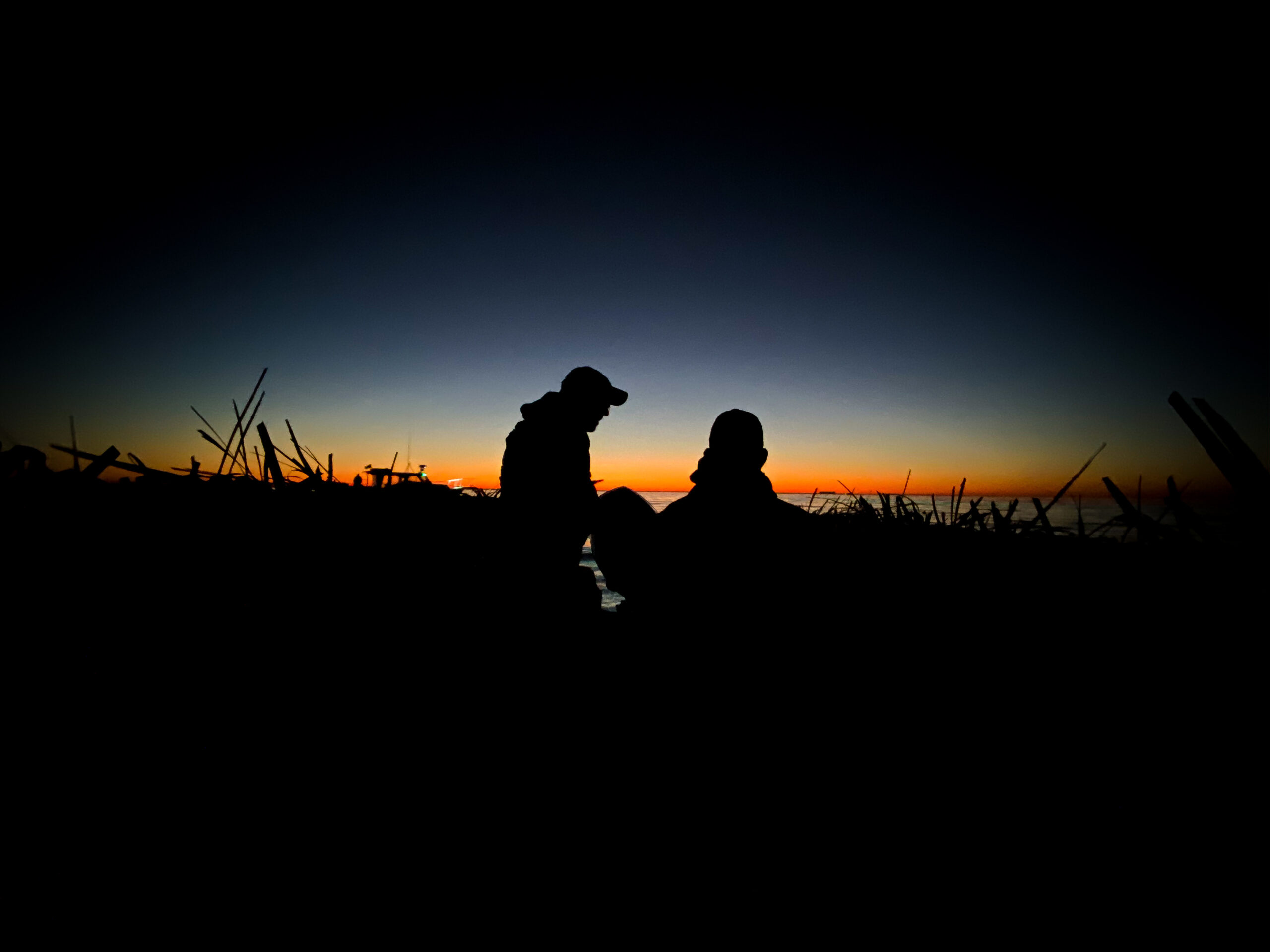After a prolonged and much needed Christmas vacation, I returned to Morgantown with a heart full of blessings and a cooler full of duck breasts — 26 to be exact.
No, I didn’t buy them when I was in Maryland from a domestic source, rather I spent 5 hours in a shore blind on Queen Sound Channel off Chinocteague Island, Va., knocking sea ducks out of the air or those that chose to land in our decoy spread.
It was my second guided diving duck hunt on the eastern shore, first hitting Chesapeake Bay on Nov. 25 to try and bag surf scoter, black scoter and oldsquaw. We didn’t get any long-tails (the formal name for oldsquaw), although the group I was with saw plenty. We only bagged six ducks between us — five surf scoters and one black scoter. But one thing I personally came back with was a love for an experience that was brand new to me.
There’s something about putting on waders and hopping into a boat at 6 a.m. (or earlier) to head out to a floating or permanent blind hoping to knock some birds down. And this recent trip solidifed that love. The group I was with met up with our guide, Capt. Matt Mason of Marshland Charters, at the Chincoteague Island Valero gas station before loading up his Carolina Skiff. From there, we taxied out to the blind on the edge of the sound. We made it unscathed through cutting December winds, unloaded and readied ourselves for the nonstop shooting that ensued.
In total, my hunting buddy — my girlfriend’s dad — and I harvested 15 divers: 11 buffleheads and four hooded mergansers. The other two combined for nine birds, all buffleheads.

Now with a week behind me, I’ve had time to reflect on the emotions and nuances that come along with it all. And, ultimately, it makes me want to share that with folks reading this article. Obviously, West Virginia isn’t a great state for waterfowl hunting. We have some places that prove effective, but the last time I spoke to Mike Peters of the West Virginia DNR, he said hunters only harvested 3,500 ducks in 2018. That’s not a lot, which makes sense for the limited areas of prime hunting in a state with no natural lakes or enough ample wetlands to support tons of birds.
There’s also a richer history of waterfowl hunting in our surrounding states of Maryland and Virginia, as well as other states along the Atlantic flyway. So, my proposal to anyone who wants to go waterfowl hunting but is hitting the same habitat roadblocks as I did prior to this year: Go on a guided hunt!
Not only does it save you money in buying decoys and blinds (and a boat, if you need one), they’re typically guided by those true-American type of folk who make this part of their life. Mason works as a guide full time — waterfowl in the winter and fishing in the summer — and if I could pump more money into a small business like his, I would. Plus, most guiding trips aren’t incredibly expensive.
Yeah, you’re going to spend a pretty penny, but it’s not like a Colorado elk hunt, where you’re dropping thousands of dollars. Our trip, for four of us, came out to around $165 a person and with tip was just over $700 total. The experience and knowledge you gain from a guided hunt is invaluable. After a few, you’ll know how to run one alone or with friends. So get out there as soon as you can. You won’t regret it.
TWEET @andrewspellman_




